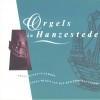Composers
Paul Siefert (variants: Syfert, Sivert, Sibert) (23 May 1586 – 6 May 1666) was a German composer and organist associated with the North German school.
He was born in Danzig to his father's second wife and named after his father (died 1604), who was a procurator. The Danzig city council gave scholarships to Samuel Scheidt and him to study with Jan Pieterszoon Sweelinck in Amsterdam from 1607 to 1610; in the autumn of that year, he returned home where he became assistant organist of the Marienkirche. His application to become principal organist of the church after Cajus Schmiedtlein died in March 1611 failed due to complaints about his arrogance and style of performance.
He moved to Königsberg in 1611 to take up the post of organist of the principal church in the 'Altstadt', and became court organist at Warsaw in 1616. He returned to Danzig in 1623 to become principal organist, where he remained until his death; he failed in an application for the post of Kapellmeister in 1627 after the death of Andreas Hakenberger, who was succeeded by Kaspar Förster. He did not lead a serene life; he became sidelined at the Warsaw court, and had long-running feuds with Kaspar Förster, choirmaster of the Marienkirche from 1627 to 1652, and Marco Scacchi, Polish court choirmaster from 1628 to 1649.
Refine by search
view all| Country: | Germany |
| Period: | Renaissance, Baroque |
Biography
Paul Siefert (variants: Syfert, Sivert, Sibert) (23 May 1586 – 6 May 1666) was a German composer and organist associated with the North German school.
He was born in Danzig to his father's second wife and named after his father (died 1604), who was a procurator. The Danzig city council gave scholarships to Samuel Scheidt and him to study with Jan Pieterszoon Sweelinck in Amsterdam from 1607 to 1610; in the autumn of that year, he returned home where he became assistant organist of the Marienkirche. His application to become principal organist of the church after Cajus Schmiedtlein died in March 1611 failed due to complaints about his arrogance and style of performance.
He moved to Königsberg in 1611 to take up the post of organist of the principal church in the 'Altstadt', and became court organist at Warsaw in 1616. He returned to Danzig in 1623 to become principal organist, where he remained until his death; he failed in an application for the post of Kapellmeister in 1627 after the death of Andreas Hakenberger, who was succeeded by Kaspar Förster. He did not lead a serene life; he became sidelined at the Warsaw court, and had long-running feuds with Kaspar Förster, choirmaster of the Marienkirche from 1627 to 1652, and Marco Scacchi, Polish court choirmaster from 1628 to 1649.



